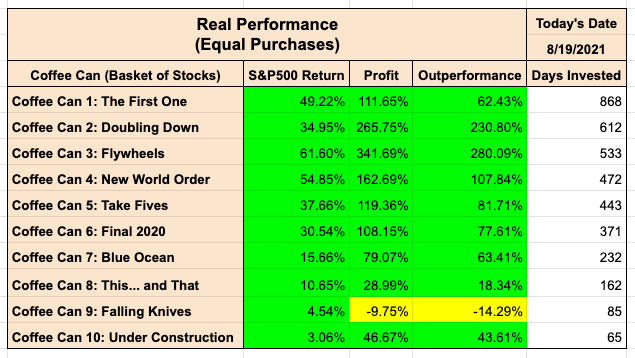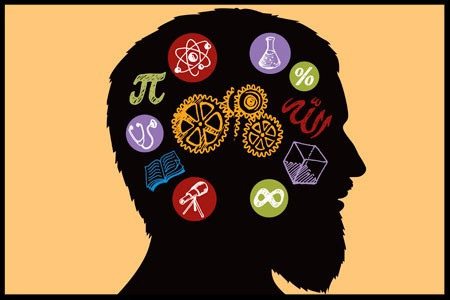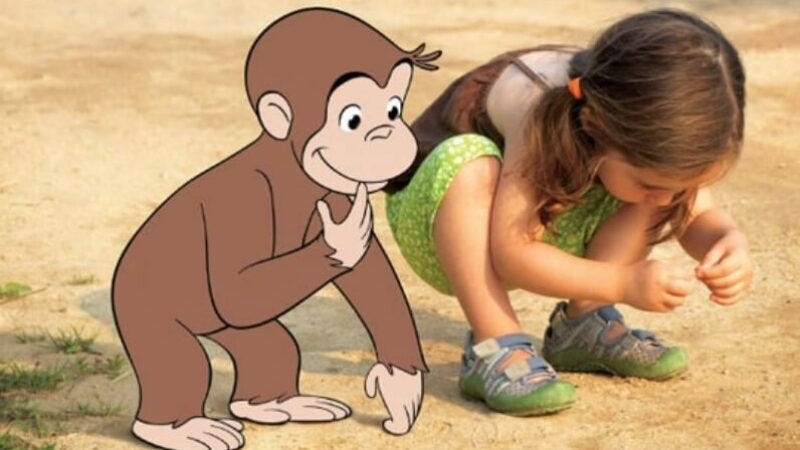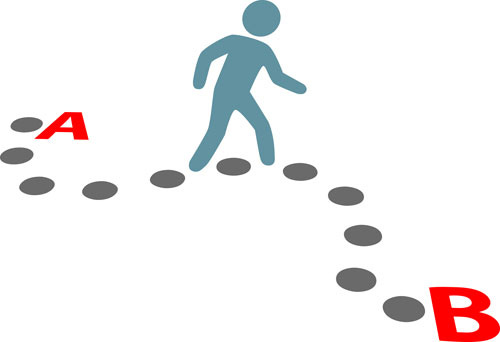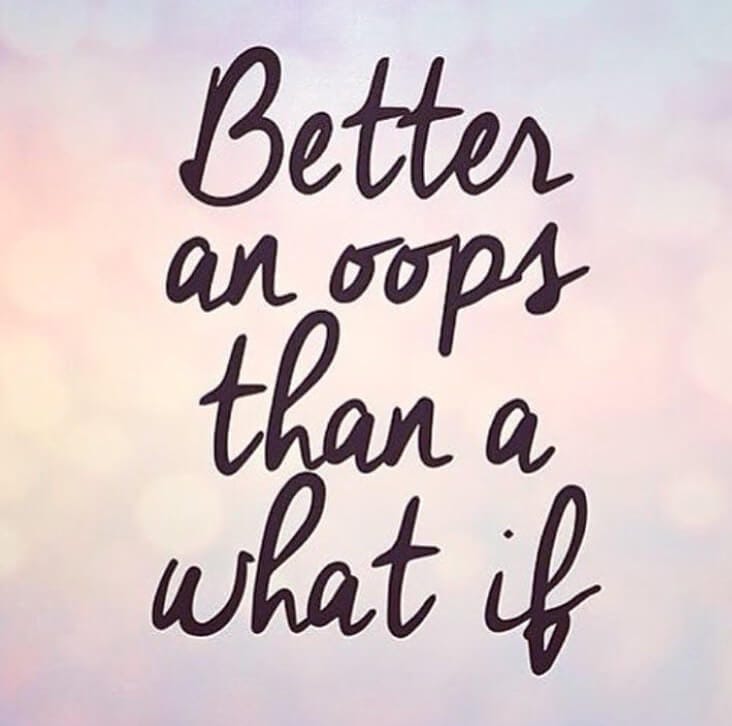❤ If you enjoy this post, help more people find it by clicking the heart up top. Thanks
I am a fan of the Coffee Can Portfolio, an “Active Passive” approach to investing.
The idea of a Coffee Can is simple: Buy a basket of the best stocks you can and let them sit for years. You incur no costs with such a portfolio, and it is simple to manage.
You can follow and track my stock baskets here, on my Performance Scorecard.
The term Polymath means a person with “many learnings.” Many researchers argue that to be a true polymath you need some kind of formal acclaim in at least two unrelated domains.
Perhaps that is the genesis of the following career advice:
“If you want an average successful life, it doesn’t take much planning. Just stay out of trouble, go to school, and apply for jobs you might like. But if you want something extraordinary, you have two paths:
1. Become the best at one specific thing.
2. Become very good (top 25%) at two or more things.
The first strategy is difficult to the point of near impossibility. Few people will ever play in the NBA or make a platinum album.
The second strategy is fairly easy. Everyone has at least a few areas in which they could be in the top 25% with some effort. In my case, I can draw better than most people, but I’m hardly an artist. And I’m not any funnier than the average standup comedian who never makes it big, but I’m funnier than most people. The magic is that few people can draw well and write jokes. It’s the combination of the two that makes what I do so rare.
Capitalism rewards things that are both rare and valuable. You make yourself rare by combining two or more “pretty goods'' until no one else has your mix.”
I believe great CEOs exhibit this combination. In fact, I believe great CEOs are polymaths. Therefore, before investing in a company, when evaluating CEOs, looking for qualities that enable polymaths to achieve success can be a fruitful endeavor.
That said, the judgement of “this is the person I am going to invest with” is not a simple one. You need to be thorough but you also need to be excited. You need to be practical but also be willing to fall in love. All of these things are important. It is not a solved problem.
But what specific qualities can we look for? Here are three.
Polymaths are Innately Curious
When Polymaths become interested in a phenomenon, they don't care where their investigation leads them. The fun is in the journey, not the end-outcome.
This usually pushes them into unfamiliar territory. Polymaths therefore tend to be self-reliant, and are happy to teach themselves on their path to personal fulfillment.
In his 2005 Stanford Commencement address, Steve Jobs, one of the greatest inventors of our time, said the following:
“You've got to find what you love.”
“Reed College at that time offered perhaps the best calligraphy instruction in the country. Throughout the campus every poster, every label on every drawer, was beautifully hand calligraphed. Because I had dropped out and didn’t have to take the normal classes, I decided to take a calligraphy class to learn how to do this. I learned about serif and sans serif typefaces, about varying the amount of space between different letter combinations, about what makes great typography great. It was beautiful, historical, artistically subtle in a way that science can’t capture, and I found it fascinating.
None of this had even a hope of any practical application in my life.”
10 years later, when he was designing the first Macintosh Computer, it all came back to him.
Polymaths Connect The Dots
Polymaths move between different spheres or disciplines. As they do, they make fundamental connections between those fields. This can lead to unique insights.
Take for example, Charles Darwin, creator of the Theory of Evolution. Steven Johnson, author of “Where Good Ideas Come From”, describes Darwin like this:
“To solve the mystery, [Darwin] had to think like a naturalist, a marine biologist, and a geologist all at once. He had to understand the life cycle of coral colonies, and observe the tiny evidence of organic sculpture on the rocks of the Keeling Islands; he had to think on the immense time scales of volcanic mountains rising and falling into the sea… To understand the idea in its full complexity required a kind of probing intelligence, willing to think across those different disciplines and scales.”
Polymaths Forge Their Own Path
As children, we are fascinated by many different things. Somehow through life, schools and stereotypes put us into buckets:
“You’re analytical”
“You’re creative”
“You’re right brained”
“You’re left brained”
etc
Over time, the world tends to push us towards specialization.
In the past, specialization created efficiencies and therefore improved productivity. In today’s knowledge economy, productivity is not measured only by quantitative output but rather, also by creative output. In a knowledge economy, learning across diverse interests and competencies and then applying your insights to your core specialty can separates you from the pack.
This is what Polymaths do: integrate knowledge and insights from multiple disciplines. Polymaths therefore, forge their own path: They have the resilience to pursue their interests in the face of the external expectations of specialization.
Nobel Prize-winning scientists are about 25 times more likely to sing, dance or act than the average scientist.
Polymath CEOs
Sergei Brin, co-founder of Google, recognized the importance of polymathy. At Google, he wanted to hire people who did more than just one thing. He wanted them to be curious but also accomplished in something. For example, Sergei wanted to hire every rocket scientist he could find because he thought “they were oddballs.” He wanted Google’s salespeople to be Olympics winners. Sergei argued that somebody who could win the Olympics had enormous discipline. Google wanted to find people who did interesting things not related to work, and then see if that was compelling or insightful in some way. This was a pretty hard test.
Jeff Bezos’s success at Amazon was likely influenced by his investment experience at DE Shaw, a prestigious Hedge Fund, and his interest in the history of innovation (as expressed here and here). DE likely gave him perspective on what good capital allocation looks like, while history knowledge provided him a framework for innovation.
Matt Calkins is a lesser known CEO but an interesting guy nonetheless. Matt, now a billionaire, co-founded Appian and grew it from a startup in his basement to a successful Public company with just $10 million of outside capital. Although Matt was the top Economics graduate of his class at Dartmouth, what I find most interesting about him is that he is an award-winning Board Game Designer, and frequently a top finisher at the World Boardgaming Championships. How cool is that?
Last but not least, below is a fun little story about Travis Kalanicks, former CEO and founder of Uber, a man of hidden talents:
This below was shared by Chriss Sacca, an early Uber investor:
“A few years back, before Uber was anything more than an app used by a group of our friends, Travis was staying at my house in the mountains over the holidays. One morning before snowshoeing, my dad challenged Travis to a friendly Wii Tennis match. My dad is a competitive guy and used to enjoy playing in local, real-life tennis tournaments when I was a kid. He also had a Wii at home and considered himself versed in the virtual game. So, he thought it could be a good opportunity to dish out a little good-natured pain to Travis.
As the match kicked off, there was my dad in an athletic stance and confidently giving it his all. He might have even been sweating a bit. Yet, Travis was barely moving his arm or breaking his wrist. Though my dad hung in there and kept it close, Travis won every game.
That was when TK, with full Princess Bride panache, announced that he had been playing with his opposite hand, and promptly switched. Uh-oh. For the next 20 minutes, my dad didn’t manage to score a single point. He was completely skunked. Yet, looking over at Travis, it was clear he was still waking up.
Travis could tell my dad was feeling dejected. I mean, the poor guy was getting aced at least every other serve. A slight smirk came over TK’s face and he reached out to shake my dad’s hand, offering him a touch of consolation.
“I have a confession to make, Mr. Sacca. I’ve played a fair amount of Wii Tennis before.” While talking, he used his controller to navigate through the settings pages on the Wii to a list of high scores.
“In fact,” he continued, “on the Wii Tennis global leaderboard, I am currently tied for 2nd in the world.”
Wrapping Up
I believe great CEOs are polymaths.
Therefore, when evaluating CEOs, looking for qualities that enable polymaths to achieve success can be a fruitful endeavor.
That said, the judgement of “this is the person I am going to invest with” is not a simple one. You need to be thorough but you also need to be excited. You need to be practical but also be willing to fall in love. All of these things are important.
This is clearly not a solved problem. But, when evaluating CEOs, looking for evidence of polymathy seems important.
❤ I hope you enjoyed this article. If you did, do like it by clicking on the heart above, and please share it with a friend or two, they may like it too!
If you’d like to connect with me, sign up for Office Hours here.
Thank you and Happy Investing!
If you’re New to Playing For Doubles
You can read more about my Investment Philosophy here:



